Dhanû
Every man or woman has at least one great treasure to give - their word.
Dhanû is one of the great city-states of the Inner Shell. It is centered around a great lake of frigid black waters, eking out a living in arctic caverns and frozen tunnels. Their lands are harsh and unforgiving but its people have built their fortune with blood, sweat and tears. Nothing has been given; everything has been earned - and taken. The city-state of Dhanû have been sharpened by terrible cold and dangerous beasts like a blade to a whetstone.
Geography
Dhanû sprawls along the shores of Lake Hoshãn, a subterranean lake of great size and indeterminable depth. Clan-holds form a patchwork of fiefdoms around the palace of the Exarch, while ice creeps through the gaps between buildings. The caverns around Dhanû are freezing, thawing only on occasion by some geothermal accident.
Lake Hoshãn
The waters of Lake Hoshãn are cold and bitter, the surface still save for the ripples cast by bobbing clumps of waste and offal thrown into the black. There's almost no life left in the lake, long since exhausted by the hungry city-state. Only stringy, tough kelp remains, farmed and harvested for food or fuel. The Dhanû hold that the lake has no bottom and that things lost to its depths spend an eternity sinking.
Most of Dhanû gets its water from the lake, with only the refined nobles preferring theirs from the more pure springs and smaller lakes that surround it. The years of waste dumped into the lake have done little to improve the acrid taste of the water, so most who can afford to do so sweeten it with lead.
The lake ends in a long, snaking river that eventually leads all the way to the Abyss, connecting Dhanû to much of the Inner Shell with an efficient, if dangerous, route.
The Shores
Along the shallow shores of Lake Hoshãn, the poor build homes on stilts and hope their structure don't collapse into the freezing waters. Living close to the waters is cold and uncomfortable, with centuries of waste floating along the shallow. Small ports and dry-docks dot each clan's piece of the lake, surrounded by small orchards of Cave-Capped Hatters that supply material.
The waters of Hoshãn ebb and flow on accords no one has yet to figure out. As such, the shores move up and down the cavern floor around the lake. Buildings must be made sturdy to account for rising waters and those who cannot afford to do so must hope that Hoshãn spare them.
The Clan-Lands
All parts of Dhanû belongs to someone. It is divided between the Clans of Dhanû, with each jealously guarding their fief. Most of the city belong to the clan-lands and these territories follow the coast of Lake Hoshãn, but not so close to the shore. Some stake claims further away from the city, on unmarked coastlines, small islands or even further inland. Most of the old lineages live near to where the city began, while the young dare to go in to the dark.
The houses are built to keep out the cold and will often share pillars with neighbors. One street can look almost like a single building, divided only by the walled enclave of clan-nobles or the end of one clan's territory. While some boundaries formed by a natural divide, where the cave shrinks into a small tunnel or the lake expands inland, most are not. Walls are a common feature in the city's architecture, with every fief surrounded by their own.
The Clanless
Some few do not belong to any clan. These unfortunates make a life in the gaps between clan-territories, surviving on scraps from others. Most of the Clanless were cast out as punishment for some act of treason or other slight, while some were of clans that have been destroyed so utterly that nothing else remains for them.
It is a quiet agreement among all the clans that no one accept the Clanless into their homes.
The Exarch's Palace
The Exarch's Palace looms over the rest of the city-state. It is both monument to their power and a mighty fortress from which they ward off would-be usurpers. The palace is built on top of a rising crest in the cave floor and its marble walls reach to the ceiling. A single gate makes the palace difficult to conquer but nearly impossible to escape from once it has been breached. Gibbets with criminals and traitors adorn the walls, their pitiful wails heard from any approach.
The interior is luxurious even by the standards of a Dhanû clan-noble. Polished tiles form resplendent patterns on the floor and ceiling, while the air is heavy with the expensive incense and smoke. This is the height that all Dhanû-nobles aspire to and its halls are the prize from centuries of raids and conquests, with each new Exarch striving to outdo the one before her. Such is their reverence for the Palace that it is sometimes referred to as "the Temple of Dhanû".
All the exalted treasures of Dhanû are kept in the Exarch's Palace, though stewardship over certain important items is often given to clan-leaders. Such gifts and responsibilities provide great prestige, making them excellent bribes for unruly subjects.. A description that fit most clan-nobles.
Survivors, Warriors and Poets
Survive first, sing later.
The Dhanû do not complain that their caverns are harsh and cold. There's no time for that.
The people of Dhanû have been hardened by difficult lives. Even now, as one of the great city-states of the Inner Shell, the Dhanû take pride in their struggles - at least, among the clan-nobles. The common folk see little in the way of glorious battle or the prestige of head-hunting in their day-to-day labor, but even they look at outsiders and know that they are better.
This sense of superiority comes from a feeling that everyone else has had it easy compared to the Dhanû. Visitors are rarely treated well until they have proven themselves equal to a Dhanû. At the same time, few things can motivate a clan warrior to action as fast as an opportunity to prove how superior they are to an outsider. The Dhanû prefer not to welcome outsiders into their city and into their homes and have isolated themselves from the politics of other cities to a degree. They don't engage in as much trade or see many travelers. Other than the glory-hunting raiding parties, Dhanû deals little with the rest of Araea. It is uncertain that the Dhanû even realize that Dūbavum considers them to be at war.
What little contact the Dhanû engage in has lead to two conquests of smaller settlements nearby and lucrative trade with the Slaver's Gate. Some enterprising clans have made their homes not in Dhanû but in these conquered territories and are encountering new ideas of trade and culture. Slowly, some begin to wonder if there are not better ways.
Culture
Dhanû society is founded largely on two concepts: obligation and expectation. To outsiders, the terms can be confusing and overlapping, but the people of Dhanû take them very seriously. Plays and stories often revolve around the way they conflict and the demands each place upon an honorable soul seeking to uphold them both. In essence, obligation is what one must do because of whatever contracts or duties they have been assigned, while expectation can be summarized as what they should do.
The most common story in theater plays is that of the warrior serving a cruel master, expected to be an honorable warrior but obliged to follow his demented commands. Such tales usually end with stoic death and are colored with fatalism.
In Dhanû society, almost everyone owes an obligation to someone else. Even the Exarch is bound by obligations to her vassals and supports. In a way, it functions as a sort of social currency and standing. Who can trust someone who has upheld no promise?
While obligations are bound by contract, expectations are less defined and more dependent on context. Less is expected of a farmer than a warrior, more by a mother than a spinster. These expectations underline almost all interactions in the city-state, each party keen to do what is expected of them but without breaking the bonds of obligation. Breaking ones' obligations carry severe and often legal repercussions but acting against expectation carries a more subtle, social loss of face and standing.
Beyond that, the people of Dhanû are a blend of rowdy, energetic, and stoic. Those who can withstand pain and discomfort without complaint are praised, with warriors expected to meet their deaths with grace and grim determination. Common past times are wrestling, racing, poetry and art. Clan-nobles in particular are expected, though not obliged, to be cultured as well as capable warriors. In the mind of a Dhanû, there is no divide between the poet that becomes the naked berserker.
Masks hold an important place in Dhanû society and every warrior is obliged to own and care for at least one. These masks are symbols of who the warriors see themselves as and what they strive to emulate. Many fashion theirs in the likeness of terrible beasts or made out of the corpse from vicious animals. They are statements and matters of prestige, with warriors often seeking to best the other by way of their mask. At the same time, wearing the mask unbidden is akin to bearing a naked blade into conversation.
Government
My word is my bond and I pledge it to the Exarch. I accept this obligation, on my honor and my house.
Dhanû is governed by a system of vassalage, where each clan is obliged to obey the Exarch. The Exarch is in turn obliged to provide justice and negotiate feuds while maintaining a mandate by communal agreement. Should a clan wish to seize power for themselves, and they often do, they have learned to be creative in their interpretation of what the Exarch's obligations actually are, as a way to get out of their own promises.
Each Clan rules their own domain, limiting the Exarch's power to matters that cross boundaries between territories. They act as arbitrates and judges, and having their favor can aid greatly in settling disputes. Exarchs are expected, but not obliged, to remain impartial and unswayed by anything beyond the merits of each case, but few clans expect this. Great prestige is given those few Exarchs who actually do.
Though the Exarch's influence is limited, they are empowered by whatever obligations they can get from the clan. Skilled Exarchs extricate as many promises as they can, while powerful clan-leaders avoid committing to them.
Industry
Dhanû are capable miners and excellent artisans with an eye for functionality. Even the most elaborate knife made in Dhanû can still cut, or it would be considered worse than useless. While poor in some minerals, Dhanû has access to mines of gold, iron, copper and coal to name a few. They are good metallurgists, though their true expertise lies with their hunters. The caves around Dhanû are dangerous and dark, filled with all manner of beasts. With time and duress, the people of Dhanû have become exceptionally skilled at turning slain monsters into tools, clothes, weapons and armor or simple works of art.
The frequent raids launched from Dhanû are just as often about necessity as they are about prestige. At times, the city simply runs out of the things they require - at other occasions, certain luxuries are desired, but not easily obtained. Raiding is a way for young warriors to accumulate wealth and resources for an older age.
These hunts provide a valuable source of meat for the hungry city. Fertile caves around Dhanû are rare and never enough to provide for the entire city. Boats carry fishers all the way to the Abyss to cast their nets and throw harpoons, while scavengers roam the tunnels for anything they can find. With the recent conquest of Hamu and Bhaata, they have been able to extract some additional foodstuffs from their domains.
It is arguable that Dhanû make the best boats in Araea, though there isn't really much competition in the field. Dhanû's fleet is always hampered by their lack of access to larger amounts of Hattick however, so each craft is kept and maintained that much more carefully. This lack of resources inform the average opinion in Dhanû about many things, with well-crafted objects becoming treasured heirloom. There may not be enough to go around for a replacement.
Guilds & Factions
Dhanû's clans are a quarrelsome and warlike bunch, equally likely to brawl with each other as they are to go on another raid. Fights over territory, over slights, over old obligations or broken expectations happen all the time in Dhanû. When one ends with a death, it gives the survivors yet another reason to fight and quarrel.
The Exarch is old and weak. Each of the Great Clans find excuses to ignore obligations and gather their forces. The city will soon see another Exarch upon the throne, crowned by blood and fire.
There are 7 Great Clans in Dhanû, and 3 minor Clans of note:
Military
The duty of waging war falls to the clan-warriors, with commoners forbidden from possessing any sort of weapon. Each clan have a number of members obliged as warriors, while each clan-noble is expected to be a great warrior and leader. These two form the core of Dhanû's military and though smaller in number than many of their rivals, the warriors of Dhanû are formidable and deadly. Any single Dhanû warrior is usually more than a match for the levy soldier of another city-state and they are not shy to express the fact.
In addition, their equipment is well made and kept. They are often made out of material other than metal, such as monstrous stingers or carapace plate-mail, that sometimes offer considerable advantage over more mundane equipment.
Dhanû's warriors are primarily an offensive force. They are rarely attacked, but often venture out on raids for treasure or simple prestige. A warrior's individual success is measured in the number of heads they collect in combat. Nearly unique in Araea, the Dhanû are skilled sailors and capable of navigating even difficult waters to reach their target. It gives them a degree of mobility around the Abyss that few can match.
The Inner Shell Dhanû is located in the Inner Shell, the name given to the region of caverns that lie many miles below the dangerous surface of the world. Here, the cavernous halls grow vast and the tunnels labyrinthine. Read more about the Inner Shell

Shrines On The Water
Lake Hoshãn is dotted with small, floating shrines made from hattick or bone. New shrines are often adorned with lantern, with glimmering lights being set adrift. Each shrine carries its own dedication engraved into the central pillar and they range from hopes and dreams to memorials and tributes. Those made and loosened by the common folk are popular targets for drunk clan-warriors to attempt to hit, though damaging the shrine of a clan-noble is harshly punished. The largest shrines are the remains of funeral pyres, an honor usually reserved for great heroes or clan-leaders. These large vessels are set alight and pushed out into the waters of Lake Hoshãn, where some charred remains still drift.Some few look at the chaos of Dhanû and decide that the lake would make a better master. They are called "mad hermits" by the rest of Dhanû, and they make their homes on rafts, strung-together boats or whatever else will float. It is considered bad luck to harm a hermit, and one is expected but not obliged to provide for them when they come ashore to beg.
The Clan Hall
At the center of each clan's holding it the Hall. It serves both as home to the clan's leader and a communal gathering place for its nobles and warriors. They are usually the largest and most elaborate structures within a clan's holdings and to try to best ones lord is considered very poor form.
Dhanû Architecture
The style of architecture in Dhanû is either exceedingly simple or very elaborate, with few things in between. Simple workshops, the house of commoners and other similar facilities bear only the most necessary of decorations and favor straight, simple lines with sharp angles. But if a structure is worthy of making beautiful, it is only proper that the correct effort is put in. Noble-houses and clan-halls are often multi-stories tall with sweeping archways and elegantly carved masonry. No matter the styling, each place is expected to be functional first and beautiful second. Even decorative shrines around the city have some purpose to them, from holding incense or collecting tithes.Honored Guests The children of clan-leaders are expected, and in some cases obliged, to be schooled at the Exarch's Palace until they come of age. There, they are to learn the correct way to govern and rule. In more practical terms, they are hostages kept there to keep their parents in line, though they are never referred to as such. Only as 'honored guests'.
The Feast
A central part of a clan's function is that of the Feast. These rambunctious events are held in the Clan Hall and serve to strengthen the ties that bind lords to vassals, in addition to being a good time. A good Feast can last a couple of days and often host competitions of wrestling, throwing or duels. It is also a place for the clan-leader to display their fortunes. A clan that can afford a Feast must be successful raiders and skilled managers of their resources. Exactly how often a Clan holds a feast varies, though to do so too often is considered wasteful rather than worthwhile.For many warriors, the Feasts are also a way to prove their mettle. In anything from drinking-contests to arm-wrestling, there is prestige and face on the line. Woe to the Warrior who passes out drunk first.
Views on the Gate
Although they have begun to trade with the Slaver's Gate, Dhanû does not keep slaves for themselves and its warriors are less than enthusiastic about the exchange. It can be remarkably easy to escape from a Dhanû slaver - they are expected to provide for the trade, but not obliged and so many lords chose to turn a blind eye to the warriors who simply don't engage in it. Even many lords find it distasteful and Dhanû has been an unreliable partner for the Slaver's Gate.The Imaður
Among the warriors of the Dhanû clan's, some belong to the Imaður - the Slayers of Beasts. These warriors are assigned the duty of facing the many dangerous beasts and monsters that constantly trouble Dhanû. It is a highly sought-after and prestigious role and the Imaður are often considered second only to the clan-leader's own guard in prowess. The Imaður are often clad in their success, wearing armor made from chitin and wielding weapons of bone or fang. Many are envious of the Masks of the Imaður, often forgetting how often the hunters end up as dinner for their would-be prey.Beast-Skins Some Dhanû warrior go even further than simply wearing armor made from a monster. They drape the carcass over their shoulder and feel the ichor seep into their flesh - they become the beast. So-called Sōtari work themselves into a battle-frenzy and bite their shields before rampaging in battle. They are dangerous foes, undeterred by fear or even grievous injury. The most common skin for a Sōtari to wear is of a large, insect-like predator that stalk the Dhanû hinterland. Its ichor, when absorbed through the skin, has a powerful hallucinogenic effect which is the reason for both its popularity and effectiveness.
Head Hunting
A warrior's individual success is measured in the number of heads they collect in battle. Prestige and even promotion is tied to how many skulls they can claim, making each battle a competition as well as a life-and-death struggle for the Dhanû. For this reason, many warriors keep a peasant-retainer with them in battle, expressly tasked with cutting the heads off of slain foes and keeping the them in a sack. These retainers sometimes come into conflict with each other when exactly who landed the final blow is uncertain. Commoners, however, are not allowed to keep any heads, should they slay one another in these skirmishes.Some Clan-Leaders keep careful track of their tally as a way to boast about their prowess and display it to the world. There are entire rooms in certain clan-halls dedicated to rows upon rows of decapitated heads preserved in strong alcohol as a testament to the clan's murderous skill.
The Iron Hag of Dhanû
I fear no-one.. Except her.If Dhanû does descend into a violent struggle for the Exarch's throne, many expect Ramaður-shi to strike first and last. The middle-aged leader of the Omotahi Clan bears a fearsome reputation as a slayer of both men and beast. Under her leadership, the clan has accumulated an impressive collection of skulls, including the entirety of a minor clan whose leader first called her "Hag". Ramaður-shi is rarely seen without her mask these days. She doesn't boast or threaten, but her silence tell her foes all she needs them to know: she is coming. She shocked Dhanû by hiring a band of skilled foreign mercenaries, an act that prompted many to look closer at the Omotahi's many journeys beyond Dhanû and the things they return with.

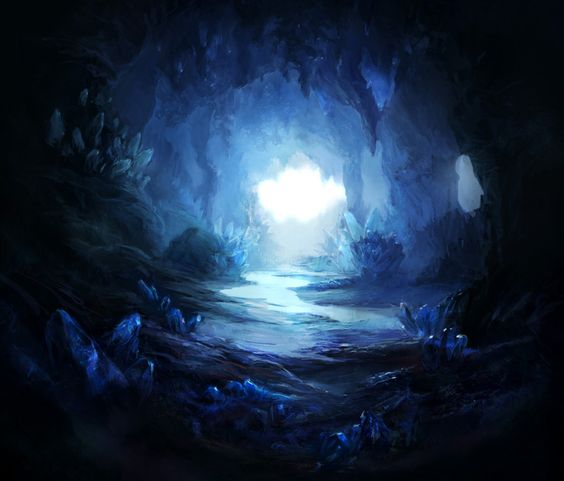
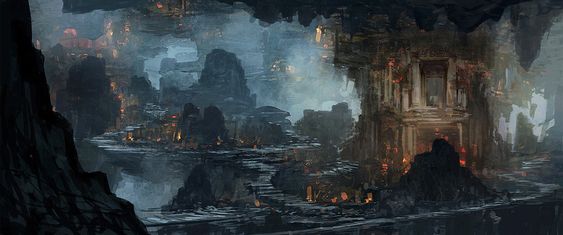
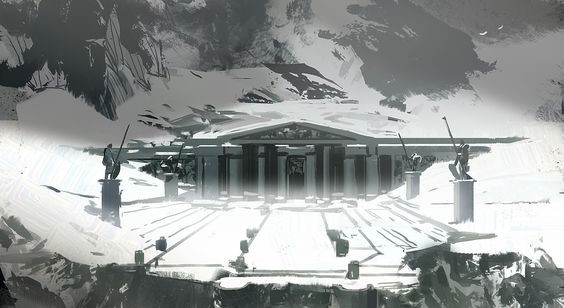
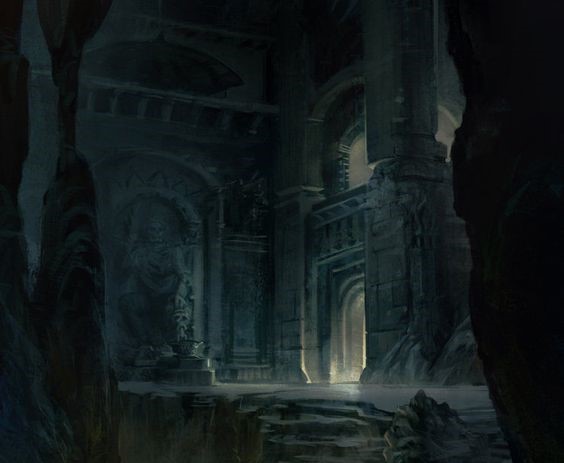



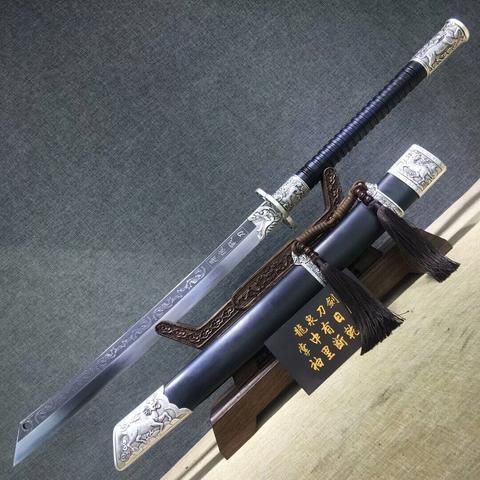
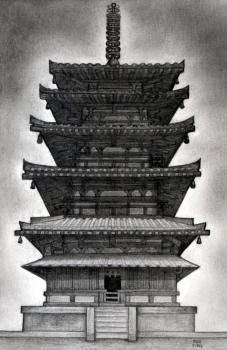
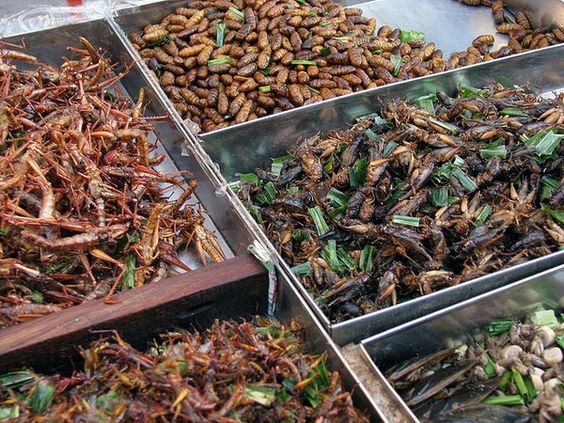
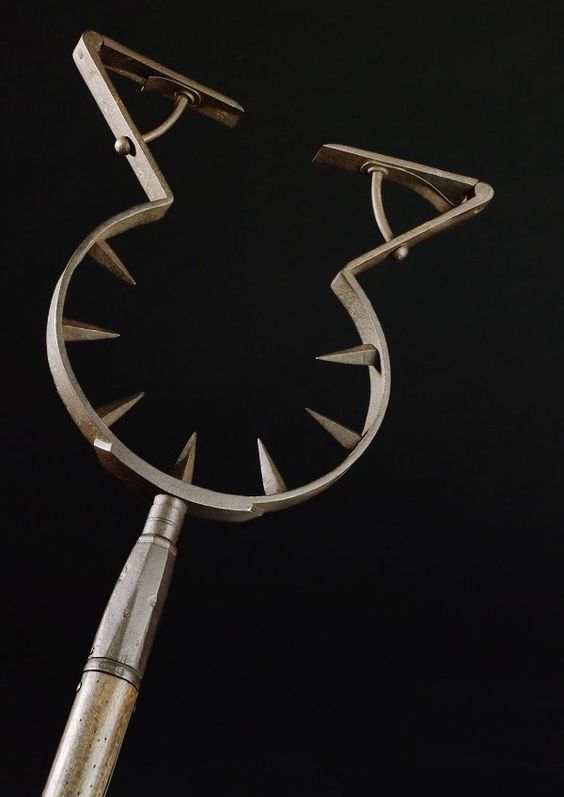






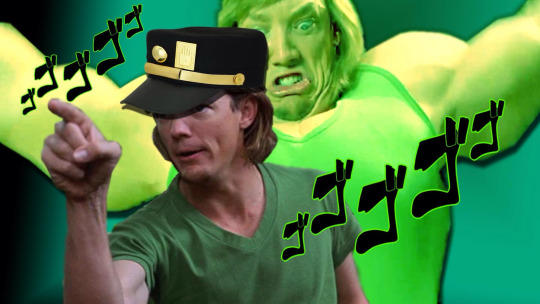

(( Their lands are not blessed by great wealth or fecundity, but its people have built their fortune with blood, sweat and tears. )) Comma can be taken out before 'but' if desired. Not a necessary addition but I know you got a definite shine for concise sentence structures. Also, in the realm of word choice, 'not blessed by great wealth' in and of itself gets the message across but could be substituted with another, shorter word. Destitute, wanting, deprived, restricted; there are a lot of words that'll let you trim the fat off. (( Nothing has been given; everything has been earned - and taken. )) The writing checks aren't grabbing it and I didn't listen in school so I might be wrong but I'm almost positive a semicolon needs to be here. If this sentence was supposed to have those heavy pauses (and the information here would benefit from that style greatly), then a semicolon links up the two stand-alone thoughts a lot smoother. Also gives you a bigger pause so the final thought is adequately isolated for its importance. (( The waters of Lake Hoshãn are cold and bitter, the waters still save for the ripples cast by bobbing clumps of waste and offal thrown into the black. )) I wrote up a tidbit on this right before my mind clicked and decoded it for me properly. Not a necessity but you might try to touch this sentence up. Just to make it flow a little smoother. I'm thinking it's the pronoun game. In my mind's eye, replacing 'the water' after the comma with a better term describing its surface or 'face' would do the trick. (( Most eventually sink beneath the black surface and the Dhanû hold that the lake has no bottom. There's almost no life left in the lake, with all fish having been long since exhausted by the hungry city-state. Some few families farm a string, tough kelp on the water, but it is dangerous work. )) First sentence could be chopped up since the ideas don't correlate closely enough. Same issue going on here that I caught in the last sentence: it takes a second but I see what you're getting at. I'd almost say I'd rewrite this entire chunk, honestly. Keep the ideas. They're good ideas. Linking things with 'and' is (obviously, lol) a trademark in writing but I'm thinking that's where your weak points are showing. These sentences just feel crippled by the message-pairing more than anything. I'll explain this further down because I'm seeing it repeated a few times. We'll mark it and move along for now. (( [...] connecting Dhanû to much of the Inner Shell with a efficient, if dangerous, route. )) 'An' efficient. Just a small typo. Also, might put 'if NOT dangerous' -- but that could just be me. Either way is honestly fine. (( All of Dhanû belong to someone. It is divided between the Clans of Dhanû, with each fief always clashing at the borders with each other. )) I believe 'belongs' is needed here. Dhanu is the proper noun describing the mass as one entity so it'll need to be treated as singular, not plural. Same with 'city' in upcoming sentences. Besides that, the word 'each' is a bit chunky when used in quick succession. You could stand to just axe 'with each other' and fix the problem that way. (( Most of the city belong to the clan-lands and these territories follow the coast of Lake Hoshãn but not so close to the shore. )) One of the few times I support commas before 'but' are sentences where 'and' has already been used to connect two trailing thoughts. Might just be a nitpicky thing but it reads better in my mind's eye. (( Walls are a common feature in the city's architecture, to mark and defend territory. )) Axe the comma. (( The Exarch looms over the rest of the city-state. A grand palace that serves at once as monument to their power, a fortification from which to weather the attempts of usurpers and a place from which they rule. )) The second sentence is a chunky boi. The wording is a little off here and I'm not sure if it's a language barrier-crossing or something else. 'As monument' would work better as 'as testimony'. Also, the 'at once' is throwing me off badly. The sentence is just a bit clunky and in need of a good rewrite. Again, keep the ideas. I think there's more an issue of word choice and sentence structuring going on. (( The single gate make the palace difficult to conquer, but nearly impossible to escape from once it has been breached. )) 'Gate' is a singular noun, so you'll just need to change 'make' to 'makes'. I'd almost start the sentence off with 'a single gate' instead of 'the single gate'. Also, axe the comma. (( The interior is luxurious, even by the standards of a Dhanû clan-noble. )) Axe another comma. (( [...] while the air is full with the scent of expensive incense and spices. )) 'Full' isn't flowing as well as other words would here. Heavy, thick, filled, tinged, pregnant -- you get the idea. (( [...] and its halls are the results centuries of conquests, [...] )) Add an 'of' before 'centuries of conquest'. If that makes the sentence ring off key with 'of' repeating twice, there are ways to rewrite this: ↪ This is the height that all Dhanû-nobles aspire to; centuries of conquest evident in their opulent decorations, each leading Exarch strives to outdo those before her. Here's what I ended up with. Maybe it'll give you some rewrite ideas. (( This sense of superiority and feeling that everyone else has had it easy compared to the Dhanû combine to make them if not xenophobic at least unwelcoming. )) Love this idea. Not a fan of this sentence structure. Maybe give it another whirl and see how it turns out? Also, prepositional phrases are typically given their own space within sentences. Not always grammatically correct, but it helps readers pause and gather extra details if necessary. It's just about how to best deliver the message you have. I think isolating 'if not xenophobic' with commas or dashes (—) would do it justice. Do that AFTER any rewriting, though. (( The Dhanû prefer not to welcome outsiders into their city and into their homes and have isolated themselves from the politics of other cities, to a degree. )) Here's a good example of a time where that last prepositional phrase isn't important and doesn't deserve the mental gap. Axe the comma. (( What little contact the Dhanû engage in had lead to two conquests of smaller settlements nearby and a lucrative trade with the Slaver's Gate. )) 'Has' instead of 'had'. Also, if the Dhanu's trade with the Slaver's Gate was a one-time-deal, keep it the way it is. If the trade is ongoing, I would encourage changing it to 'and lucrative trade' to signify its continuation. (( [...] and are encountering new ideas, of trade and culture. )) You can axe this comma too. (( Dhanû society are founded largely on two concepts: [...] )) Again, society is a singular noun, so 'are' should be 'is'. (( Plays and stories often revolve round the way [...] )) 'Around' would sound better here. Not sure if a tiny typo or something else. (( While breaking ones obligations carry severe and often legal repercussions, acting against expectation carry a more subtle, social loss of face and standing. )) 'One' is being used as a pronoun here and needs to be possessive with the 's'. Also, I think we may have found the issue you have with verb phrases! Here's an example: ↪ "Acting against expectation carry [...]" → → → "Acting against expectation carries [...]" The verb phrase here would be acting carries, which makes a lot more sense than acting carry.
If you ever feel confused about why verbs change according to the noun or the spellchecker isn't catching it (most don't and WILL screw people over), chop your sentence down to its most basic parts—your noun and your verb. So, if we broke this sentence down to its core, we leave everything but the noun and the verb: acting carries. That sounds right! Now, if we hadn't changed the verb to match our noun yet, we would've gotten this: acting carry. Does that make sense? Think of a noun and verb as a sentence's mommy and daddy. A sentence is one big, dysfunctional family and our job is to get all the baby words to cooperate with one another. If your noun and verb don't play nice with each, there's gonna be a lot of miscommunication going on. This is probably the most important piece of feedback I'm offering you. Let's continue. (( [...] are blend of rowdy, energetic and stoic. )) Are a blend. Also, and this is up to personal taste, but I like me some oxford commas. (( In the mind of a Dhanû, there is no divide between the poet that become the naked berserker. )) On one hand, I am in love with odd descriptions because my brain appreciates them. On the other, I know some people might get confused by this. Not really anything I would change (besides adding an 's' to become) but just some fair warning. (( Masks hold an important place in Dhanû society and every warrior is obliged to own one, and expected to care for them. )) Would try to somehow edit the caring portion. "[...] and every warrior is obliged to own and care for them," sounds better in my opinion. (( These masks are symbols of who the warrior see themselves as and who they seek to be. )) Warrior should be plural. If not, then see should be made plural. (( Dhanû is governed by a system of vassalage, where the each clan is obliged to obey the Exarch. )) Little typo. Just axe the 'the' before 'each clan'. (( Each Clan rule their own domain, [...] )) Got that noun/verb miscommunication here again. 'Rule' should be 'rules'. (( Dhanû are capable miners and excellent artisans, with an eye towards functionality. )) Axe that comma. Also, would encourage you to change 'towards' to 'for'. (( Commoners are forbidden from owning weapons, to the duty of waging war falls to the clan-warriors. )) I would rewrite this so the second half flows smoothly. The phrase 'to the duty of' doesn't make much sense with what follows. What you could try is this: ↪ Commoners are forbidden from owning weapons, the duty of waging war given only to clan-warriors. That would both make the comma necessary and buff out the second half's rough edges. After glancing over your side panel, I'm going to assure you that the issues described above are your top priority and are more or less the only repeat offenders. Remember to axe any unnecessary commas and check verb/noun pairings. That's where I'm seeing the most issue. Other than that, I'd encourage looking into some grammar pages to help figure things out further. You've got a good grasp on writing, so the rest should be smooth sailing. I LOVE that the masks ended up being part of the culture and I love that they get most of their material from monster hunting. Always a huge dork for monster hunting societies! Still, it's a great article with a lot of information to enjoy. It was a fun read and you definitely have my like!
First of all, thank you so much for the really in-depth read and feedback! :D
Removed the comma and changed it to: "Their lands are harsh and unforgiving but its people have built their fortune with blood, sweat and tears." (which maybe means the comma should be back in >.> ) Fixed! Fixed! Fixed! Fixed! Fixed! Fixed! Did both things. :) Shuffled it around some! Phew.. And that's round one! Thank you so much! :DCreator of Araea, Megacorpolis, and many others.